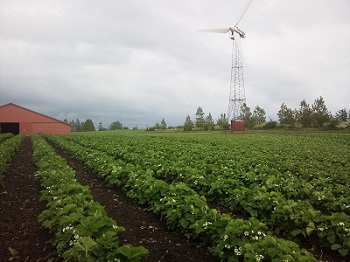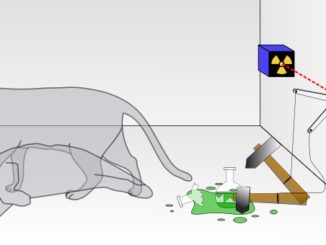Research into organic food systems may have an impact on the overall sustainability of conventional food systems. This is the suggestion made by the International Centre for Research in Organic Food Systems (ICROFS), who presented the results of a study conducted in Denmark from 1997 to 2012 at a conference held at Christiansborg, the Danish government building on August 28th.

Main effects of organic research
The analysis was carried out as interviews with stakeholders – farmers and their advisors, food processing companies, governmental bodies and NGOs. The biggest effects were seen among farmers and their advisors. Many “conventional” perceptions in organic primary production have been effectively challenged by research, and some have even had a “spill over” effect onto conventional farming. Besides reducing the consumption of antibiotics in dairy cows, research and effective dissemination of research results has led to new strategies for weed management and differentiated fertilizer use in plant production, as well as new strategies regarding animal welfare and mortality in pork production.
Among governmental bodies and NGOs, the biggest effects have been within animal welfare and environment, in which cases the research results have been used as a framework for policy-making. For the food processing companies, the results have not been as direct, but many companies, especially within milk and meat-production, have experienced an improved supply of high standard meat and milk and a larger market, mainly because there has been an increased consumer focus on environment and animal welfare.
The future of organic research
Michael Stevns and Niels Halberg, director of ICROFS, both saw investing in organic research as highly important in the future as it will benefit both the environment and the economical sustainability of Danish farming and food production. Politicians in the debate panel, however, warned that the financial crisis will mean that all research funding will suffer from cuts during the years to come. This means that increased investments in organic research, as called for by scientists and by Organics Denmark, depends heavily on prioritizing among research objectives.
Global impact of research
The Danish minister of Food, Agriculture and Fisheries, Mette Gjerskov, said that ‘organic production’ has a personal meaning for many consumers. For her, the word organic first and foremost stands for no pesticides. But organic should mean more than just applying to the rules and being able to label your products with the Danish ”Ø” mark or the EU organic leaf-mark, said the minister. The rules may foster creativity among farmers who will then find new solutions to arising problems, solutions that are not only technological ‘quick fixes’. Evald Vestergård, chairman of Organic Denmark, said that the emphasis on organic research not only has an impact on conventional farming, but can be used to qualify discussions on a global level. Organic alternatives must continue to be taken seriously in the discussions concerning global food security in a changing climate.
The chairman of the board of ICROFS is Thomas Harttung, founder of ”Aarstiderne”, which delivers organic food in boxes on a subscription basis to approximately 40,000 households in Denmark and 5,000 in Sweden.




